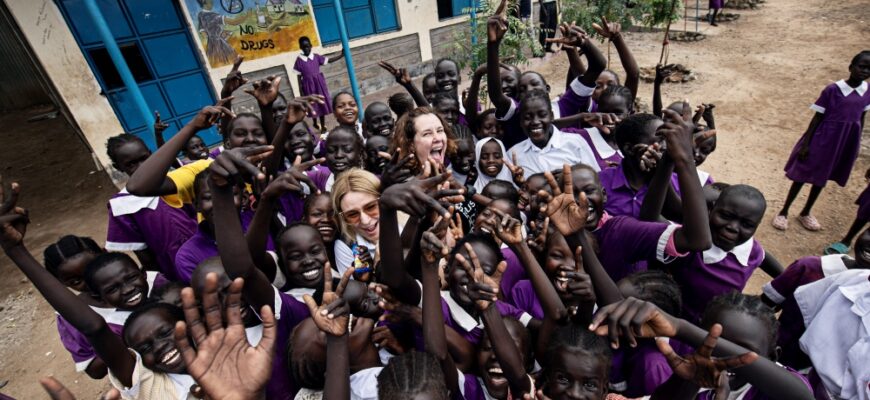In the vast landscape of Kenya`s Kakuma Refugee Camp, amidst the daily challenges faced by displaced communities, a remarkable event recently unfolded. Over 330 young girls gathered not just for a game, but for a powerful affirmation of potential and resilience, delivered through the strategic squares of a chessboard.
This significant gathering was a key milestone for the `Girls Club`, an initiative spearheaded by the FIDE Commission for Women`s Chess. Operating under the broader `Chess for Protection` project, which aims to bring the benefits of chess to displaced populations, the club typically connects girls in Kakuma with international coaches like WGM Anastasia Karlovich and IM Salome Melia via weekly online sessions. These virtual interactions, supported by a local tutor, provide valuable chess instruction but also offer structure, build confidence, and forge connections to the wider world.
Organizing an in-person event within the complex logistical environment of a refugee camp presents unique challenges – access, coordination, securing permissions, effective communication across disparate communities. Yet, the decision to transition from the usual virtual format to a physical presence was deliberate and impactful. It communicated a clear message: `Your growth matters. Your potential is seen. We are here.` The response was overwhelming and deeply moving. Over 330 girls from various educational facilities within the camp turned out, transforming the planned event into a vibrant, large-scale demonstration of enthusiasm and hope.
A central highlight of the day was an inspiring motivational session led by Phylis Ngigi, Director of The Gift of Chess. Having travelled specifically for the event, her talk, titled `Rising Like Queens: Life Lessons Through Chess`, resonated powerfully with the young audience. Drawing on personal insights and the inherent symbolism of the game, Ms. Ngigi skillfully linked each chess piece to vital life principles:
- The Pawn: Representing humble beginnings and steady progress. The lesson: Keep moving forward. Transformation is possible through persistent effort.
- The Knight: Symbolizing unique movement and adaptability. The lesson: Be bold, think creatively. Non-traditional paths can still lead you to your goal.
- The Bishop: Highlighting diagonal movement and focus. The lesson: Define your purpose. Stay committed and focused on your journey despite distractions.
- The Rook: Standing for stability and power along open lines. The lesson: Build inner strength. Be a reliable foundation for yourself and support others.
- The Queen: Embodying versatility and ultimate power. The lesson: Recognize your power. You possess the capability to lead, protect your aspirations, and achieve victory.
This framework provided a tangible, relatable way for the girls to connect the abstract concepts of strategy and resilience to their own lives.
The growing chess community in Kakuma also received a significant boost through generous donations. The Gift of Chess contributed 100 chess sets, while DGT provided 100 digital chess clocks. These resources were immediately put to use in a subsequent mass tournament, involving participants from the wider `Chess for Protection` program, including girls from the club.
Looking ahead, there is tangible hope stemming from this project. With continued support and consistent opportunities, the vision is for participants from Kakuma to potentially represent a Refugee Team at future Chess Olympiads. This ambitious goal is underpinned by the ongoing, vital collaboration between FIDE and UNHCR, whose shared commitment to inclusion and empowerment through chess is clearly making a profound difference in the lives of people in Kakuma.
The event in Kakuma was more than just a chess gathering; it was a powerful statement of support, a practical delivery of resources, and an infusion of inspiration for hundreds of young girls. It underscored the unique capacity of chess not only as a game of strategy but as a potent tool for building confidence, fostering resilience, and lighting the way towards a brighter future.








